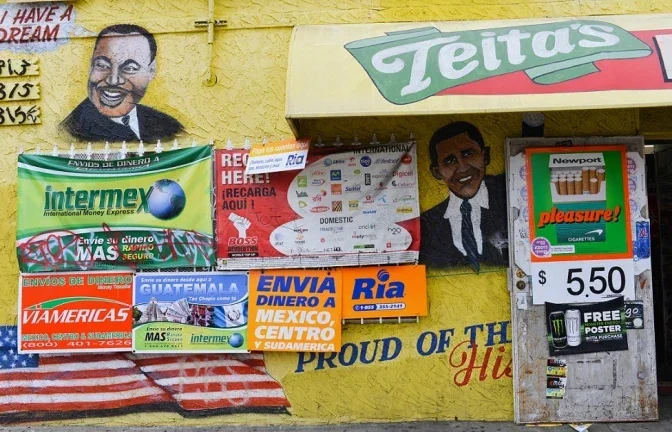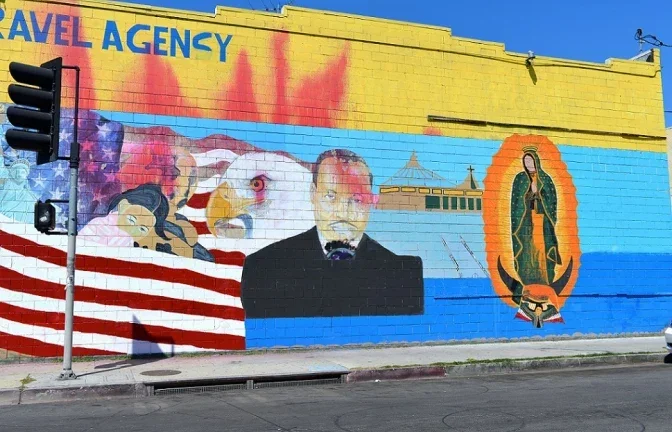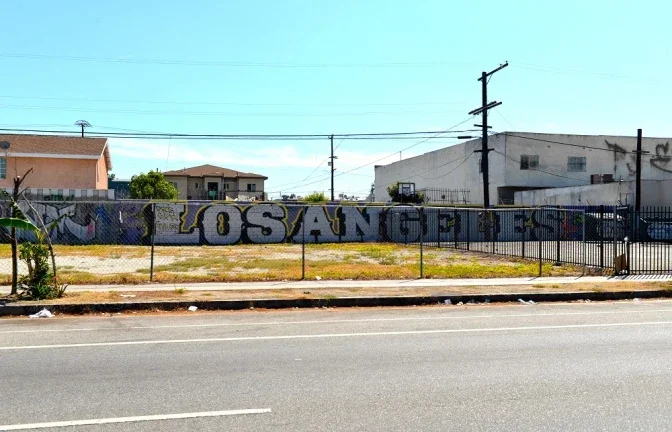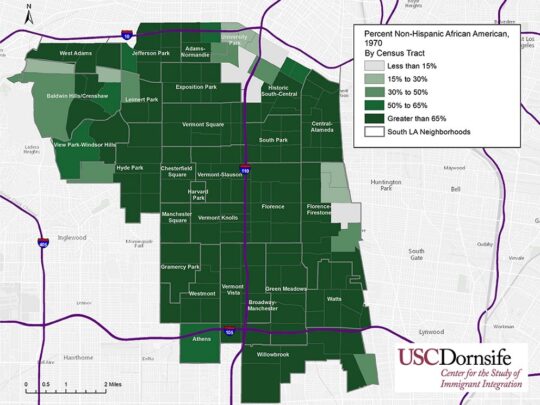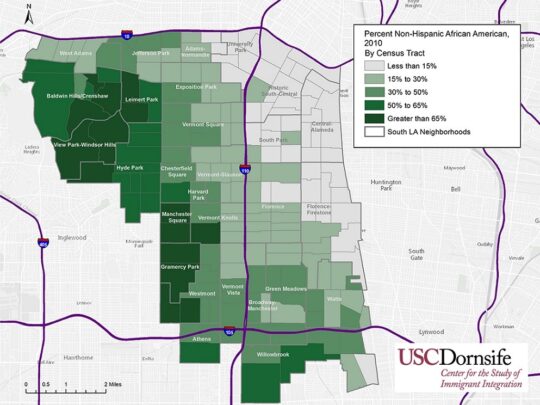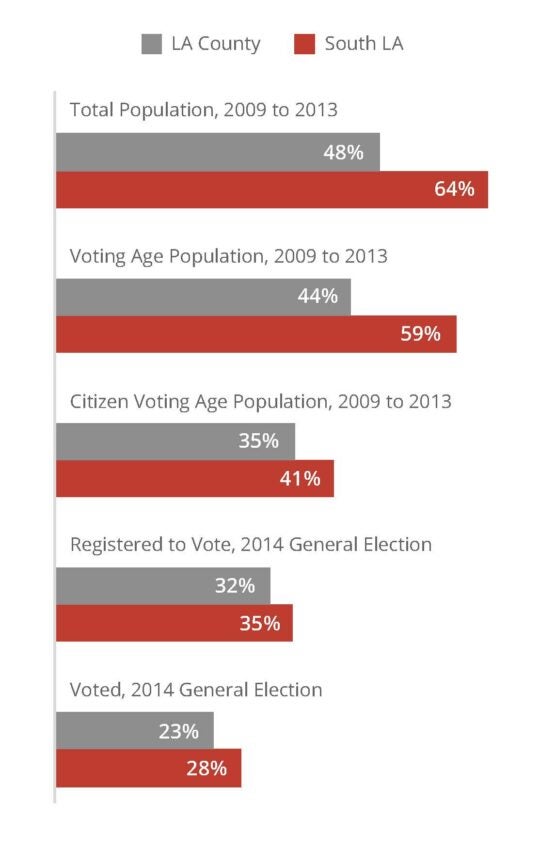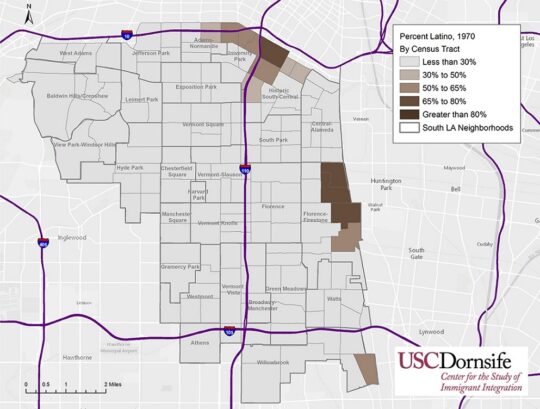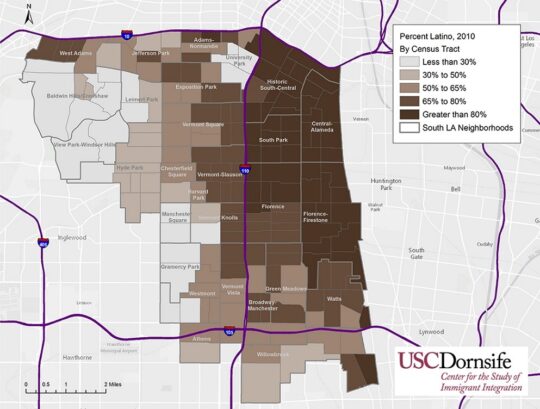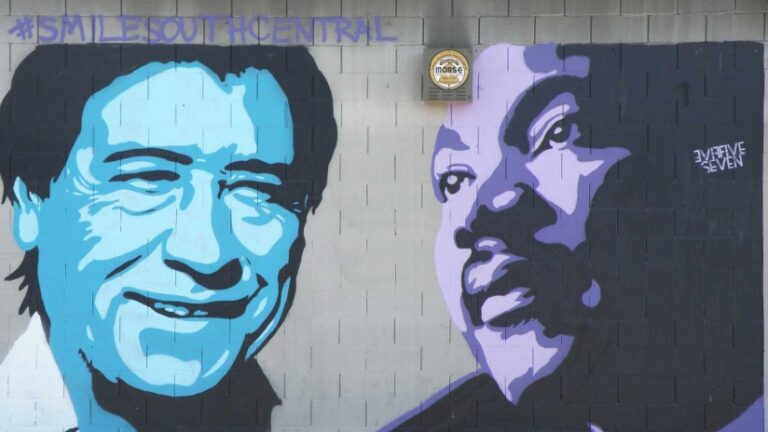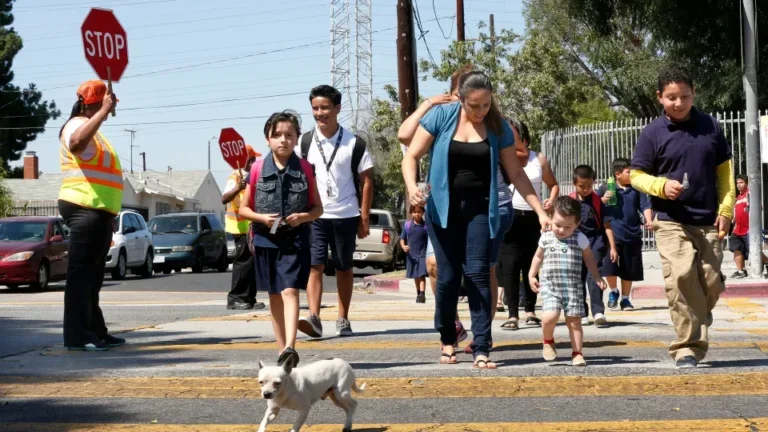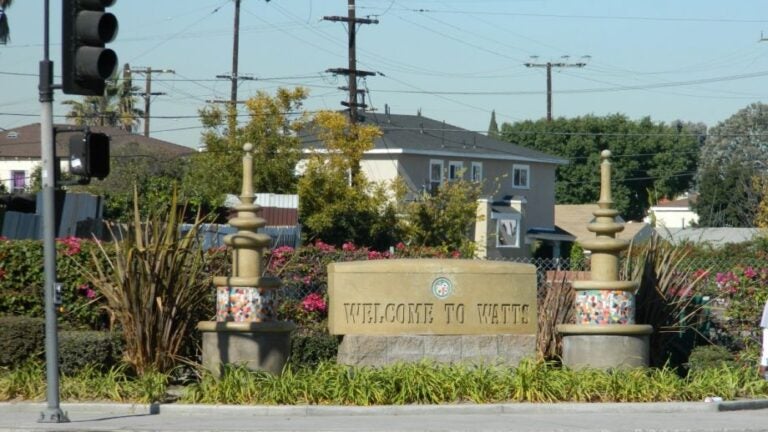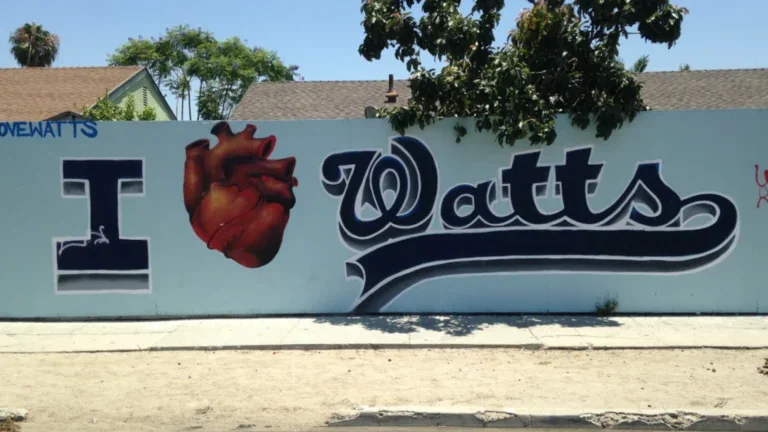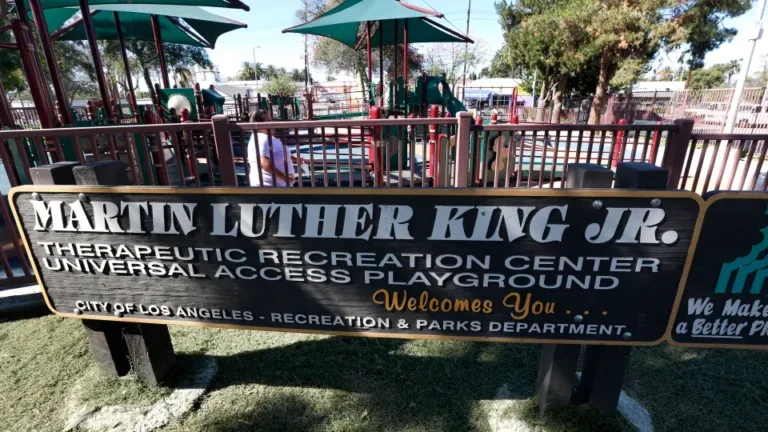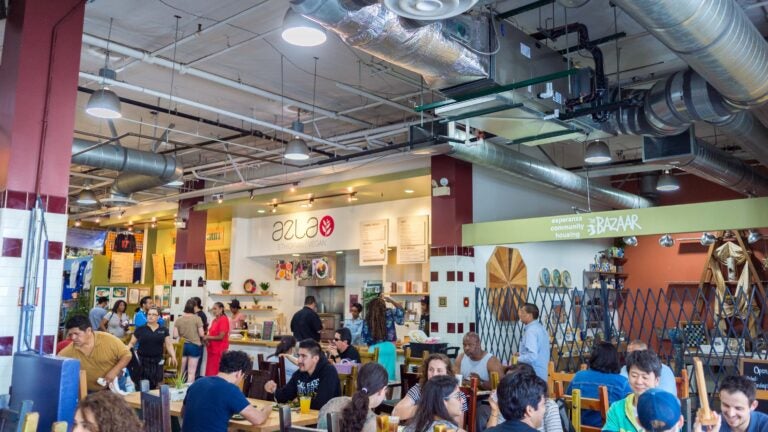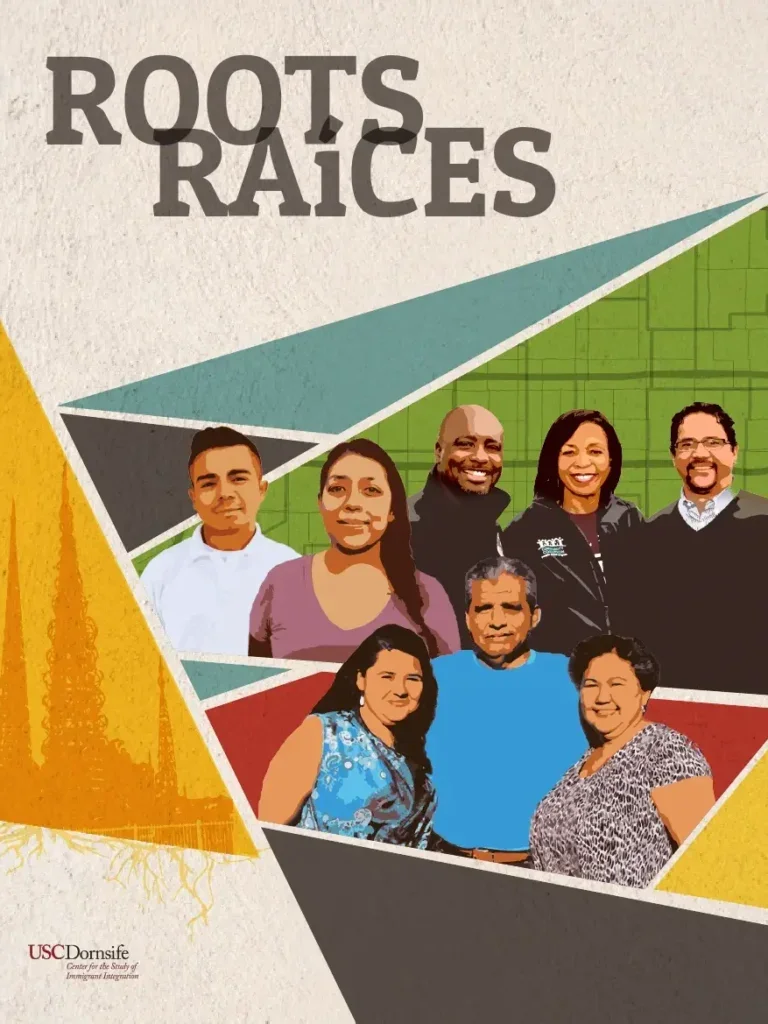
2016
By Manuel Pastor, Pierrette Hondagneu-Sotelo, Alejandro Sanchez-Lopez, Pamela Stephens, Vanessa Carter, and Walter Thompson-Hernandez
Please note: reports dated earlier than June 2020 were published under our previous names: the USC Program for Environmental and Regional Equity (PERE) or the USC Center for the Study of Immigrant Integration (CSII).
About Roots|Raíces
CSII’s Roots|Raíces research project was born out of relationships with community groups and community leaders in South Los Angeles.
Over the last two years of research, some of these leaders have stressed the need for a positive assets-based story of South LA, particularly one that shows how the earlier tensions associated with the Latino shift have been transformed over time.
The full report will present our findings and multi-faceted stories from interviews with 100 residents and nearly 20 civic leaders in South LA, with a focus on three neighborhoods: Central Avenue, Vermont Square, and Watts.
Roots|Raíces report features in-depth chapters on:
- Shifting Space: Decades of Demographic Change – includes a brief history of South LA, maps, and a quantitative exploration of demographic transformations over time.
- Finding Place: Latinos on Living in South LA – explores the experiences of the first and second generation Latino residents we interviewed and what these generational differences mean for civic engagement in South LA.
- Bridging Race: Institutions in Flux or Inflexible – discusses how South LA organizations are navigating challenges and addressing tensions, building leadership capacity and civic engagement, and organizing Black-Latino alliances for a shared future.
- Facing Forward: Lessons and Recommendations – outlines key findings and offers recommendations for broadening civic engagement, deepening multi-racial coalitions, investing in capacity-building efforts and reframing the narrative on South LA.
This report underscores:
- The importance of understanding the similarities and differences between two rooted communities in order to build bridges;
- Place identity can be as important as race identity and both should be considered to move toward common goals of social justice; and
- Building a Latino voice in South LA means bolstering Black voices and understanding that both depend on independence and interdependence.
What happens in South LA will not stay in South LA: Investing in both African American and Latino leadership can prepare us for the challenges and opportunities of a city and country that will continue to be increasingly multiracial, multiethnic, and multilingual.
Funders:
This project was made possible through funding from the W.K. Kellogg Foundation, The California Endowment, and The James Irvine Foundation.
Información en Español
El Sur de Los Ángeles es a la vez un centro histórico de los Afroamericanos en Los Angeles Sur y un lugar donde un nuevo tipo de integración de los inmigrantes se está desarrollando.
El informe de CSII, Roots|Raíces: Compromiso Latino, Identidades de Lugar, y Futuros Compartidos en el Sur de Los Angeles, explora los contextos, las experiencias vividas, y los datos detrás del establecimiento de los latinos en un lugar históricamente afroamericana.
Roots|Raíces nació de las relaciones con los grupos de la comunidad y líderes de la comunidad en el sur de Los Ángeles. Durante los últimos dos años de investigación, algunos de estos líderes han subrayado la necesidad de una narrativa positiva del sur de Los Ángeles, en particular uno que muestra cómo las tensiones anteriores asociados con el cambio Latino han evolucionado con el tiempo.
Roots|Raíces ofrece información sobre las transformaciones ocurriendo en el corazón de la comunidad Negra de Los Ángeles y las lecciones importantes que hay para la región y el país. El reporte es el resultado entrevistas con 100 residentes locales y 20 líderes civiles en el sur de Los Ángeles, con un enfoque en tres barrios: Avenida Central, la Plaza de Vermont, y Watts. Un análisis cuantitativo de a fondo está entrelazado a lo largo de la narración a nivel de barrio y la región, el cual explora los cambios demográficos, económicos y cívicos que han ocurrido durante las últimas décadas.
El informe de Roots|Raíces esta dividido en cuatro secciones principales:
• Desplazamiento Espacial: Las décadas de los cambios demográficos – incluye una breve historia del sur de Los Ángeles, mapas, y una exploración cuantitativa de las transformaciones demográficas a lo largo de el tiempo.
• Encontrando su Local: Los Latinos Viviendo en el Sur de LA – explora las experiencias entre la primera y segunda generación de residentes Latinos que entrevistamos y lo que estas diferencias generacionales significan para la participación ciudadana en el sur de Los Ángeles.
• Conectando las Razas: Las Instituciones en Flux o Inflexibles – analiza cómo las organizaciones del Sur de LA navegan retos y hace frente a las tensiones entre grupos raciales, el desarrollo de la capacidad de liderazgo y el compromiso cívico, y la organización de alianzas Negro-Latina para un futuro compartido.
• Siguiendo Adelante: Lecciones y recomendaciones – resume los hallazgos clave y ofrece recomendaciones para la ampliación de la participación ciudadana, la profundización de las coaliciones multi-raciales, la inversión en actividades de creación de capacidad y la reformulación de la narrativa que existe sobre el Sur de LA.
Entre otros hallazgos, nuestro informe recalca:
• La importancia de comprender las similitudes y diferencias entre las dos comunidades enraizadas con el fin de construir puentes;
• La identidad de local puede ser tan importante como la identidad racial y ambas deben ser considerados para avanzar hacia objetivos comunes de la justicia social; y
• La construcción de una voz Latina en el sur de Los Ángeles requiere el fortalecimiento de las voces Negras y entendimiento de que ambas están basadas en su independencia y la interdependencia entre ellas.
Lo que está sucediendo en el sur de Los Ángeles no se quedará en el Sur de LA: Invertir en el liderazgo tanto Afroamericanos como Latinos nos puede preparar para los desafíos y oportunidades de una ciudad y una nación que va a seguir siendo cada vez más multirracial, multiétnica y multilingüe.
Financiadores:
Este proyecto ha sido posible gracias a la financiación de la W. K. Kellogg Foundation, The California Endowment, y The James Irvine Foundation.
Download Roots|Raíces reports
#RootsRaices Video
Credits: “Charcoal Alley” written and performed by Vin Villa @VinnyDukeVilla for the Roots|Raíces project. Videography by Matthew West. Produced by Alejandro Sanchez-Lopez. Edited by Jenny Zhang. Project coordination by Gladys Malibiran.
#RootsRaices Article Series
CSII partnered with KCET Departures on a three-part article series to lift up key themes, data, and analysis from the Roots|Raíces research project. Read the articles by clicking the cards below.
Roots|Raíces: Shared Futures in South Los Angeles
By Manuel Pastor and Alejandro Sanchez-Lopez
(Photographed for CSII by Walter Thompson-Hernandez)
Latino Identity in South Los Angeles – Across the Generations
By Pierrette Hondagneu-Sotelo and Walter Thompson-Hernandez
(Photographed for CSII by Walter Thompson-Hernandez)
Shifting Spaces: Demographic Changes and Challenges in South Los Angeles
By Pamela Stephens
(Photographed for CSII by Walter Thompson-Hernandez)
Data Visuals
Percent Non-Hispanic African American, South Los Angeles, 1970
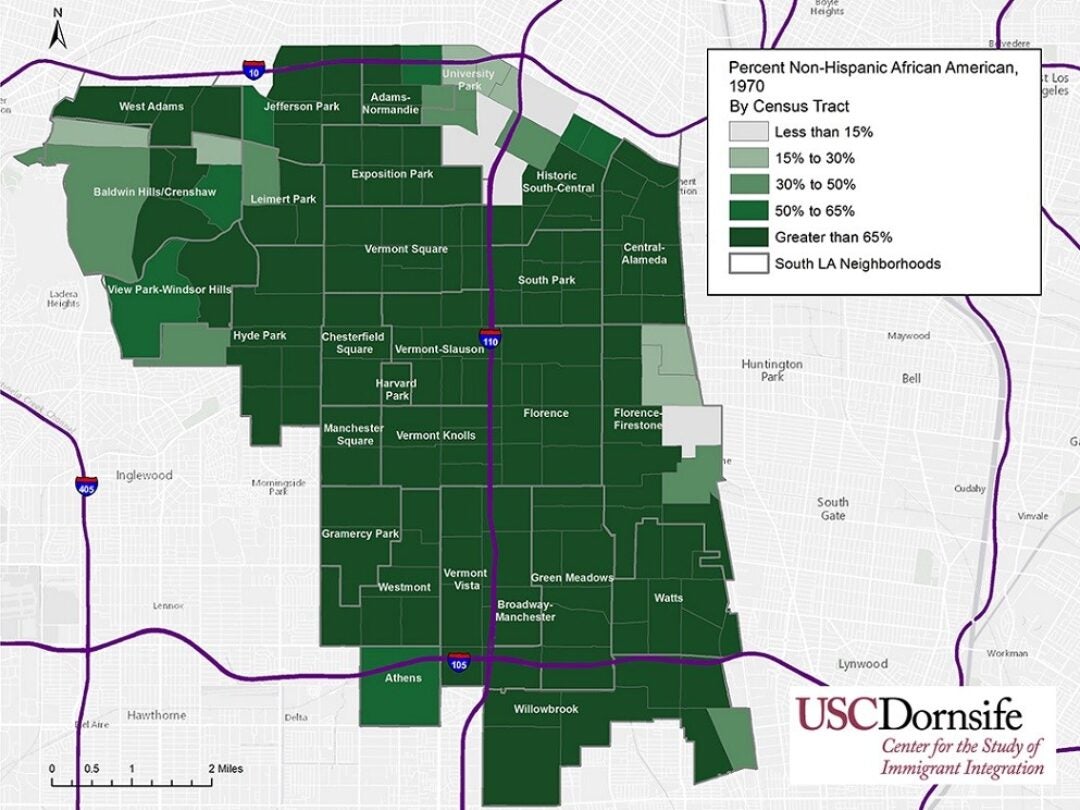
Percent Non-Hispanic African American, South Los Angeles, 2010
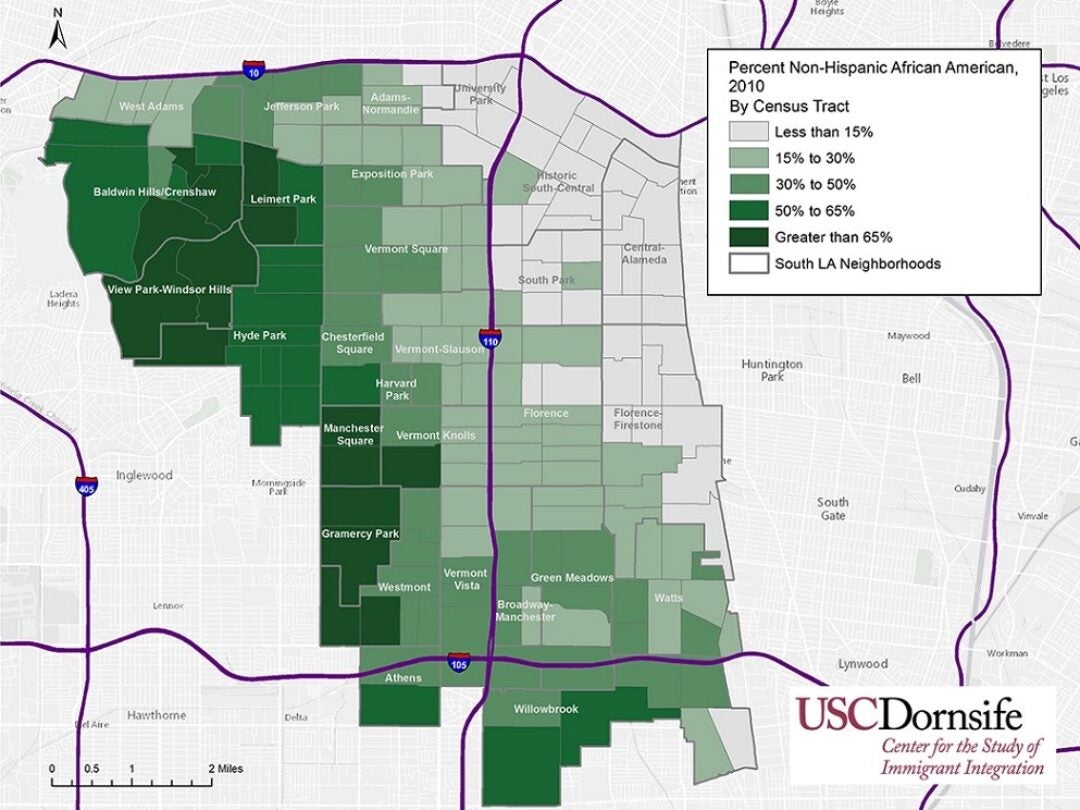
Civic Engagement of Latinos as Share of the Total Population in South LA and LA County
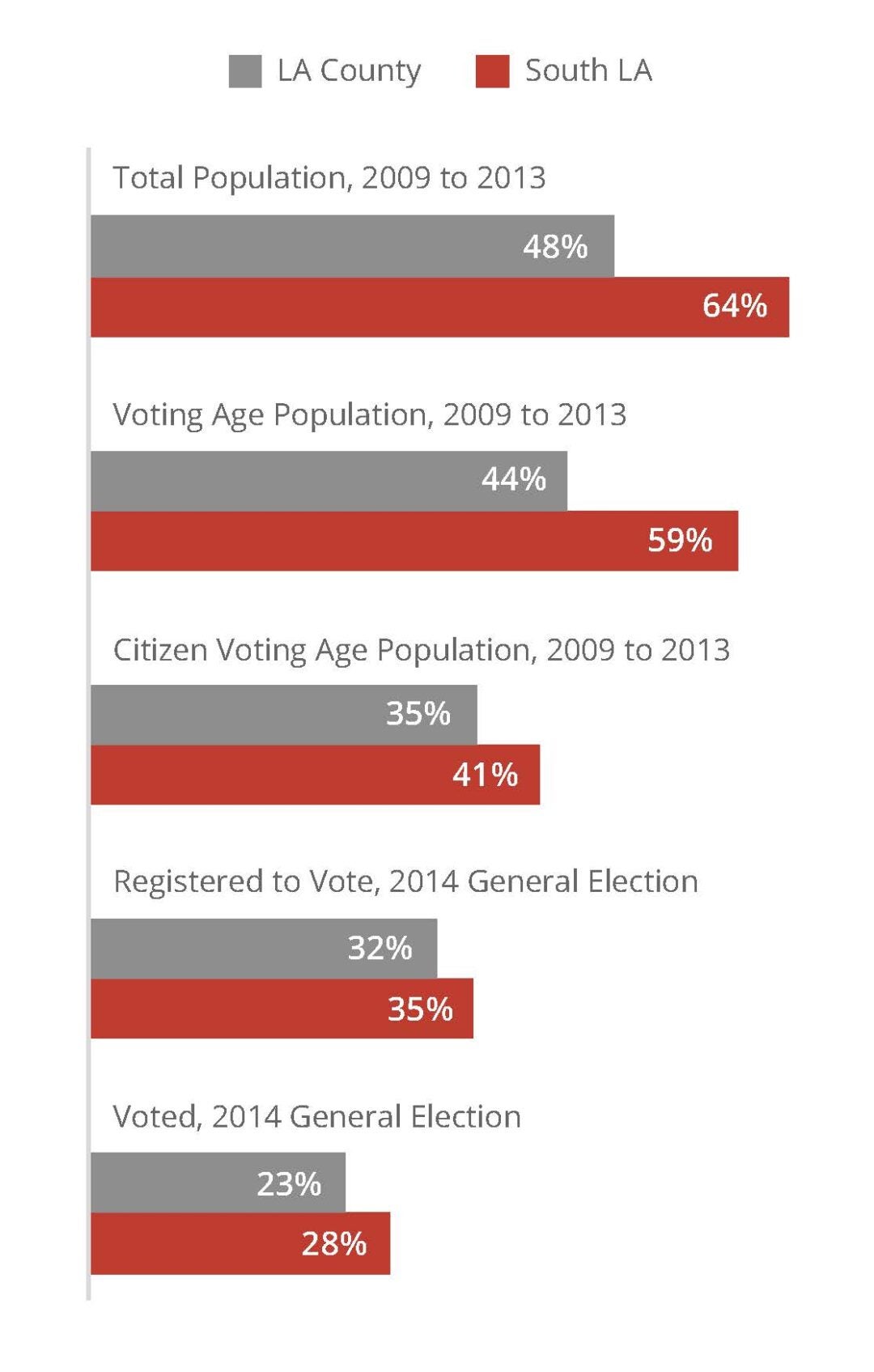
Percent Latino, South Los Angeles, 1970
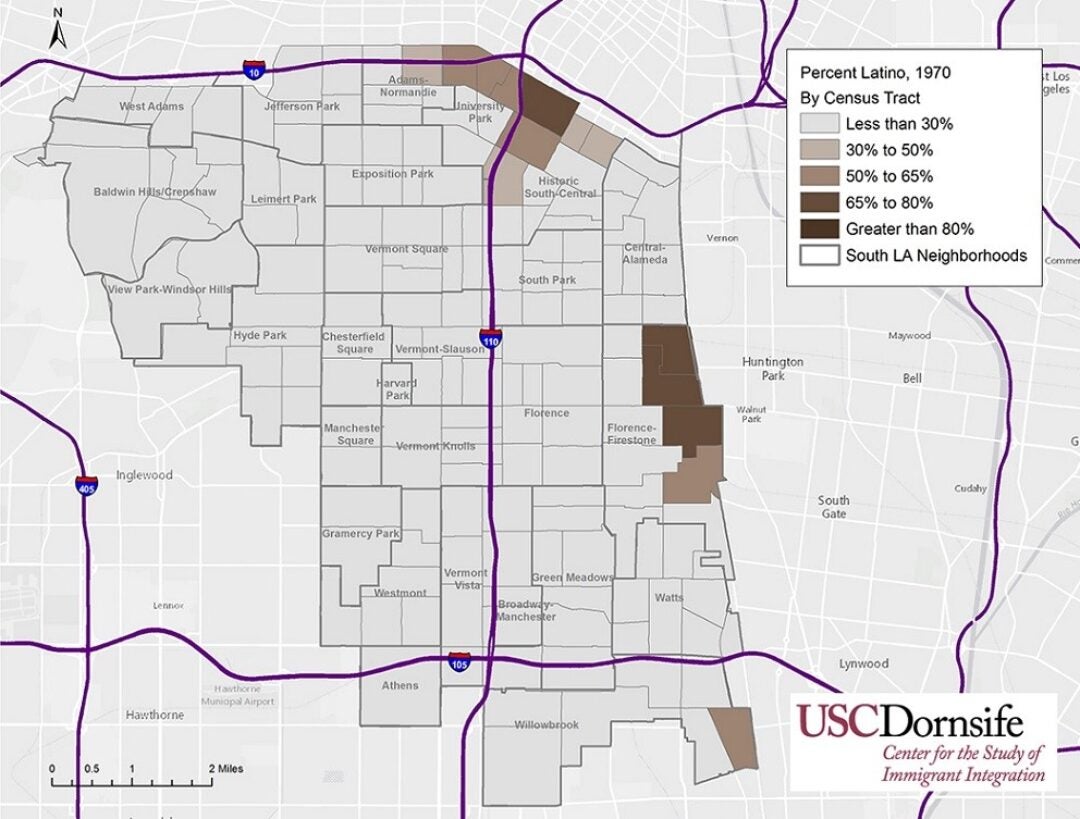
Percent Latino, South Los Angeles, 2010
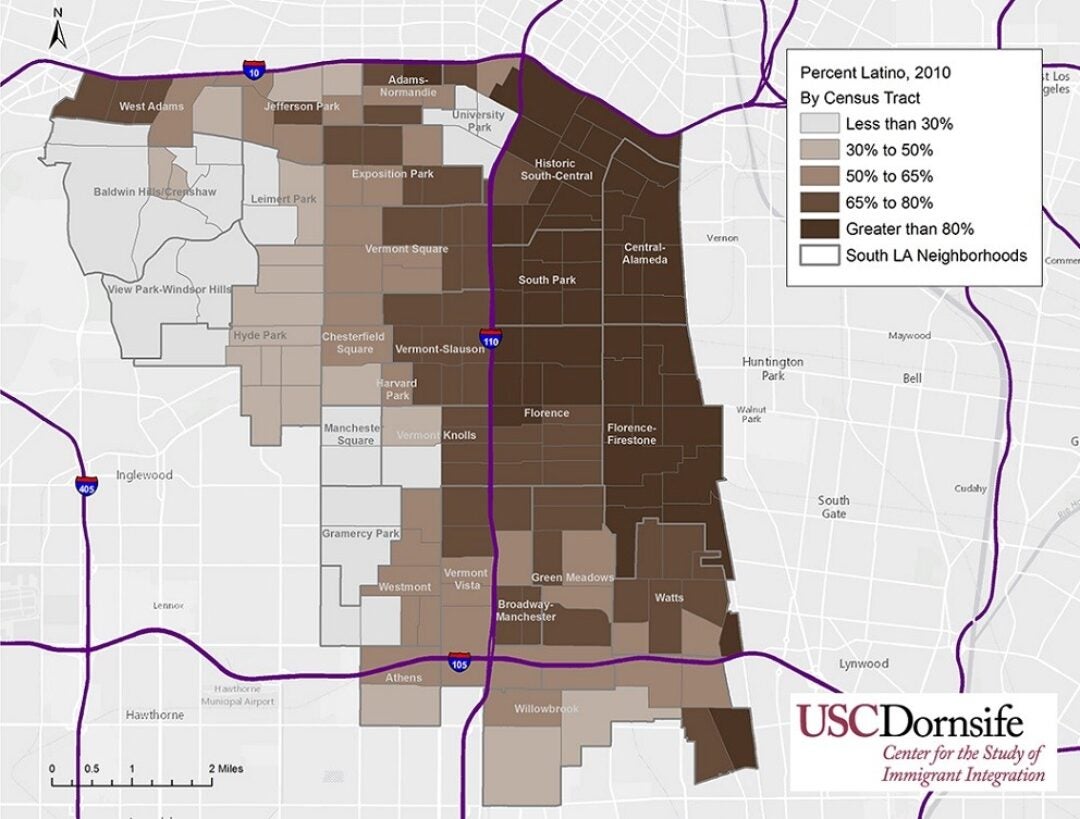
In the Media
November 2, 2016
La Opinión Spanish Op-ed by CSII director Manuel Pastor and Data Analyst Alejandro Sanchez-Lopez
(Foto: Aurelia Ventura / La Opinion)
November 4, 2016
NextCity By Johnny Magdaleno
(Photo by Jengod)
November 2, 2016
CityLab by Tanvi Misra
(Photographed for CSII by Walter Thompson-Hernandez)
November 1, 2016
89.3 KPCC with A Martinez spoke with Manuel Pastor about #RootsRaices
(Photo: Leslie Berestein Rojas / KPCC)
November 1, 2016
La Opinión by Francisco Castro
(Foto: Aurelia Ventura / Impremedia / La Opinion)
CSII researchers, Vanessa Carter (Senior Data Analyst) and Alejandro Sanchez-Lopez (Data Analyst), previewed the findings from CSII’s Roots|Raíces report on South LA for the KPFK FM radio show Deadline LA.
Listen to the audio online from the show archives (select the July 4th episode).
